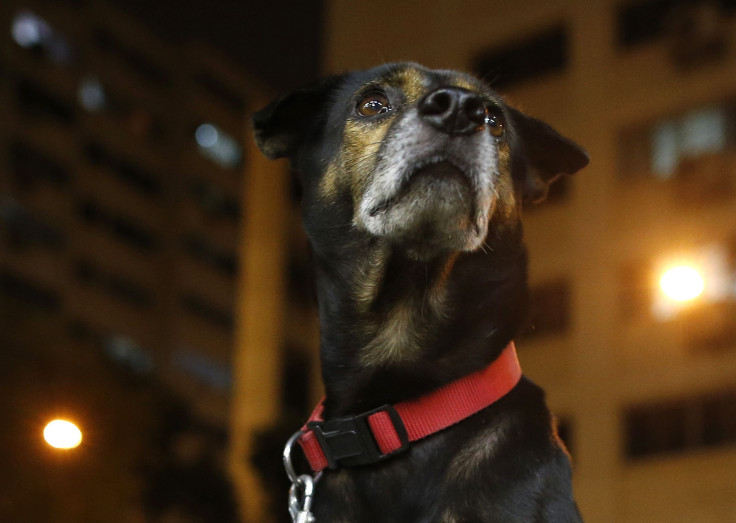What Is Dog Flu And How Can It Affect Humans?

Dogs could trigger a flu pandemic among people in the future, a new study revealed Tuesday, raising concerns among dog lovers.
Researchers found flu strains can jump from pigs to dogs and could affect humans as they spend a lot of time with their pets. Influenza affecting dogs are different from the human strains and when these new strains jump to humans, the immune systems — which have no experience of these unknown pathogens — fail to protect the body.
"The majority of pandemics have been associated with pigs as an intermediate host between avian [bird] viruses and human hosts. In this study, we identified influenza viruses jumping from pigs into dogs," study author Adolfo Garcia-Sastre said.
"In our study, what we have found is another set of viruses that come from swine that are originally avian in origin, and now they are jumping into dogs and have been reassorted with other viruses in dogs," added Garcia-Sastre, the director of the Global Health and Emerging Pathogens Institute at the Icahn School of Medicine at Mount Sinai in New York City.
Dogs with the flu may have cough, runny nose, fever, eye discharge and reduced appetite and playtime. Not all dogs experience symptoms, and, most of them recover within a few weeks. To prevent the pets from contracting the flu, it is necessary to keep them away from sick dogs.
The first identified case of dog flu in the United States, also known as canine flu, occurred in March of 2015 in Chicago, according to the American Veterinary Medical Foundation. Five years ago, researchers identified a bird-origin flu virus circulating in farm dogs in China.
"We now have H1N1, H3N2 and H3N8 in dogs. They are starting to interact with each other. This is very reminiscent of what happened in swine 10 years before the H1N1 pandemic," Garcia-Sastre said.
The findings, published June 5 in the journal mBio, highlights the need to take steps to limit the circulation of flu viruses in dogs.
"The United States is free of avian influenza because every time avian influenza has been detected in poultry in this country, the chickens or turkeys are culled and eliminated from circulation," Garcia-Sastre explained in a news release. "There are attempts to restrict influenza virus in pigs through vaccination and one could consider vaccination for dogs."
Researchers said future studies will reveal if and how humans can be immune to canine H1N1.
"If there is a lot of immunity against these viruses, they will represent less of a risk, but we now have one more host in which influenza virus is starting to have diverse … characteristics, creating diversity in a host which is in very close contact to humans," Garcia-Sastre said. "The diversity in dogs has increased so much now that the type of combinations of viruses that can be created in dogs represent potential risk for a virus to jump to a dog into a human."
© Copyright IBTimes 2024. All rights reserved.





















